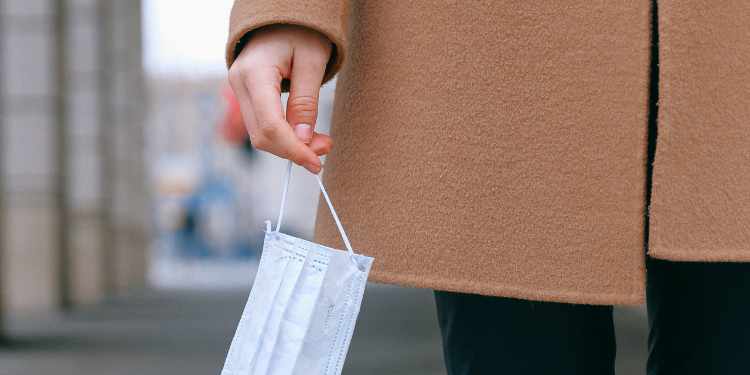









Surrounded by a world full of random features, as human beings, we possess an innate, strong psychological drive to see other people’s faces and facial features. In fact, our brain’s perceptual system configures the things we perceive, and frequently fills in unclear scenes, revealing something that may not actually be there. So what happens when a pandemic like Covid-19 appears, and we find ourselves surrounded by people in masks?

Pressure from our evolutionary roots justifies exactly why we are programmed to lock on to faces in our environment, and to process the mental state of people around us, by analyzing their facial expressions. Indeed, it could be argued that if we see someone looking straight at us, frowning and tensing their jaw, it is clear that they are getting angry with us, long before they dump us as lovers, or hold up their spear ready to take aim. In fact, there is a clear survival warning in being able to see someone’s full face – so that means no masks, goggles, or other facial PPE. And on a more gentile note, our brains even make decisions about how attractive another person’s face is within around 13 thousandths of a second, processing so fast that it occurs below conscious awareness.
To examine this question, we need to look at the science, and consider how the fundamental psychological processes of our brains’ perception is changed. Gleaning an insight from recent research by the Canadian University of Lethbridge, entitled, Face Perception Loves a Challenge; Less information sparks more attraction and it can be determined that hiding half the face [vertically] significantly increases its attractiveness to observers.
The study’s authors, Lauren Krowicki and Javid Sadr, have used a unique research method, and the results indicate that, “50% less face produces 40% more attractiveness.” But would a horizontal face covering, i.e., a mask, have the same impact? The journal, Vision Research, which has just published the results of the study, notes that, “the general conclusion, that less is more when it comes to viewing a face leading to increased attraction, may still apply to wearing a face mask.”
Psychologists theorize that this attraction to obscured faces could be due to the fact that our brains are compelled to fill in any missing features, which in the case of mask wearers, is the mouth, part of our cheek bones, and the shapely part of our nose. But could it be that we tend to reflexively assume a much more desirable missing contour than is the reality. This may be because our neurology is forced to revert to ideal or more desirable features, because this is a stronger feature of our unconscious.